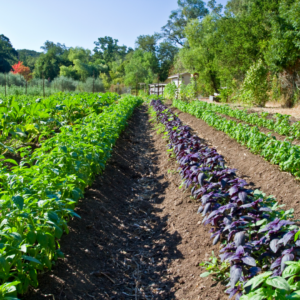Rural Initiatives
Rural Resident Retention and Attraction Guidebook
Introduction to Rural Resident Retention and Attraction What is Resident Retention and Attraction? Resident retention and attraction (RRA) initiatives position communities to address issues associated with population size (e.g., low or declining number of residents) or population composition (e.g., aging population) — whether that be a shortage of skilled workers, low school enrolment, or a…
Read MoreTrail and Rossland Sign Recreation Agreement for 2024
ROSSLAND – In a move towards continued regional collaboration, the cities of Trail and Rossland have reached a Trail Resident Program (TRP) recreation services agreement for one year that would come into effect January 1, 2024. This agreement marks a significant step forward in promoting community well-being, sharing resources and enhancing recreational opportunities. The agreement permits residents…
Read MoreThe Rise Of Innovation Districts
A New Geography of Innovation in America Originally posted on Brookings.edu Written by Bruce Katz and Julie Wagner As the United States slowly emerges from the Great Recession, a remarkable shift is occurring in the spatial geography of innovation. For the past 50 years, the landscape of innovation has been dominated by places like Silicon…
Read MoreRural Economic Diversification and Infrastructure Program (REDIP)
Program Details The Rural Economic Diversification and Infrastructure Program (REDIP) is a new grant launched by the Ministry of Jobs, Economic Development and Innovation (JEDI). The Government of B.C. is investing up to $33 million this year to create the Rural Economic Diversification and Infrastructure Program, which will support projects that promote the following: Economic diversification…
Read MoreAn Infrastructure Gap Slows Down Adoption of EV
‘The gap is large’: B.C.’s small towns illuminate urban-rural divide in EV infrastructure There’s an infrastructure gap that’s slowing down the adoption of electric vehicles across B.C. Here’s what three small towns — urban and rural — are doing to close it. In areas with less population density, British Columbians outside of city centres are…
Read MoreRural BC Project – Video
The purpose of the Rural BC Project was to develop recommendations to the provincial government on actions that would help facilitate rural development in BC. The video below was produced in 2013 when the BC Rural Centre was SIBAC (Southern Interior Beetle Action Collation). SIBAC partnered with the other two regional Beetle Action Coalitions to…
Read MoreImportance of Co-op’s in Agriculture
Governance, investment for growth and development, accessing institutional markets, and land management were among the topics covered at the inaugural BC Agriculture and Food Co-op Conference in Kamloops, March 24-25. Hosted by the BC Co-operative Association, the event attracted about 120 growers, processors, retailers, academics, government representatives, policymakers and others came together to raise awareness…
Read MoreFarmers Enhancing Riparian Areas – Kootenay Program Expands to New Regions
Farmers and ranchers in the Columbia Valley will continue to see rewards for taking action to conserve and enhance important riparian areas on their farms. The Windermere District Farmers’ Institute (WDFI) was one of nine groups named in January to receive a share of $133,600 this year through the Columbia Valley Local Conservation Fund for…
Read MoreA New Hotline for Rural BC!
The BC Rural Centre has a new direct phone number to call when you need to talk to someone about Rural Issues, Challenges, Opportunities, and Inquiries. Over the past few months, the BC Rural Centre has been adjusting to a few key changes, new staff, including a new Executive Director and a revisit of the…
Read MoreA Memorandum of Understanding on Local Government Financial Resiliency
The Province and Union of BC Municipalities will work together to review the local government finance system in B.C. to ensure that municipal governments and regional districts remain resilient in the face of economic changes. Municipal Affairs Minister Josie Osborne, Finance Minister Selina Robinson, and UBCM President Laurey-Anne Roodenburg have signed a Memorandum of Understanding on Local…
Read More









